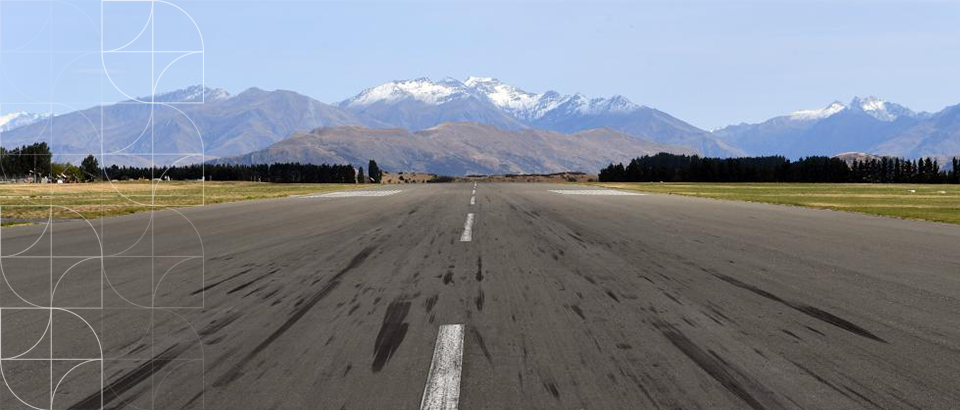Lease of Wanaka Airport set aside due to insufficient consultation

Lease of Wanaka Airport set aside due to insufficient consultation
Tuesday 15 June, 2021
All local authorities are aware of the requirement to consult before making significant decisions but carrying out genuine consultation that complies with legal obligations can be complicated. Failure to get it right can result in decisions being overturned or contracts set aside. In April 2021, the High Court set aside a 100-year lease of Wanaka Airport due to inadequate consultation.
Background
In October 2016 Queenstown Lakes District Council publicly notified a Statement of Proposal to change the way Wanaka Airport was managed by entering into a long-term lease with Queenstown Airport Corporation Limited (QAC). Wanaka Airport would be managed as a complementary and supplementary facility to Queenstown Airport and accommodate excess aircraft from Queenstown. The Proposal did not discuss the likely term of the lease, the level of activity, or the scale of investment that could result, but at the time, the Council was contemplating a 30-year term. The Proposal also did not mention that jet services could be introduced to Wanaka Airport.
However, in July 2016, QAC had commissioned a study to examine siting options for a second airport in Queenstown. In April 2017, it received the siting report which recommended a dual airport operation in Queenstown and Wanaka and in May 2017, received a draft Concept of Operations Report, which assumed that by 2045, all aircraft serving Wanaka Airport would be jets.
The Lease
In late April 2017, the Council agreed that it would lease Wanaka Airport to QAC and delegated authority to the Mayor, CEO, and two councillors to negotiate and execute the lease. Lease negotiations started around June 2017 and a Heads of Agreement was signed in January 2018 which agreed that the lease term would be 100 years. A lease was executed on 8 March 2018 for 100 years, with the lease to continue year by year after that time and requiring 30 years’ notice to terminate the lease. Those negotiating the lease did not refer the final version to the full Council for approval before executing it. Following growing unease about the proposed development of Wanaka Airport, the Wānaka Stakeholders Group (WSG) sought a judicial review of the Council’s decision to grant the lease to QAC.
Transfer of control
Section 97(1) of the Act provides that a local authority cannot transfer control of a strategic asset unless the decision is explicitly provided for in its long-term plan and has been consulted on. The Court considered that s 97 was intended to cover situations where a local authority retains ownership of a strategic asset but transfers away the power to decide the future use and direction of that asset. The Court concluded that the Council had transferred control of Wanaka Airport to QAC because, for 90 years, the lease effectively gave QAC the same rights to control the airport, as if the Council had transferred legal ownership to QAC. Section 97 of the LGA specifically requires local authorities not to transfer control of strategic assets other than through the long-term plan process and the Court held that retaining indirect control through the Statement of Proposal process did not alter that obligation where the transfer was so substantial.
Consultation
WSG argued that the consultation on the Statement of Proposal did not meet the requirements under the Local Government Act 2002, as the Statement of Proposal did not reflect the Council or QAC’s real intentions regarding the development of Wanaka Airport or the proposed length of the lease. The Court considered that the Statement of Proposal had given the impression that any lease of Wanaka Airport would relate to “the next decade or longer” and to development of the airport to receive “spill-over” flights from Queenstown Airport, not jet services. The Court held that there was nothing in the Statement of Proposal that suggested a lease of 100 years or longer or the introduction of jet services. At the time, the Council appeared to contemplate a 30-year lease and did not expect the development of jet capability.
The Court was concerned about the lack of evidence regarding the purposes that the lease intended to achieve but inferred from the terms of the lease and circumstances around negotiation that, by the time lease negotiations were underway, the Council and QAC envisaged that Wanaka Airport would be developed as a complementary airport to Queenstown Airport which could accommodate jet aircraft. Accordingly, the Council had failed to consult on the decision to grant the lease to QAC, because the lease went “significantly beyond the scope of the Statement of Proposal.”[1] The Court concluded that the Council had not complied with the consultation requirements in s 97, making the decision to grant the lease unlawful.
The Court granted an injunction preventing the Council and QAC from taking any steps to develop the airport or operate it as a dual capability airport and set aside the lease. The Court acknowledged that it would cause disruption, inconvenience, and expense to set the lease aside, but that failing to do so would limit the public’s “ability to have a say in the future uses of the Airport over the next 100 plus years.”
Conclusion
Consultation can be a complex area for local authorities and challenges to decisions are not unusual, as the obligation to consult is often misunderstood as an obligation to comply with submitters’ views. However, it is vital that local authorities take care in preparing consultation documents. They must present a detailed and accurate picture of the proposal, so that the local authority can engage in genuine consultation with those affected. If there are significant changes to the proposal after consultation has occurred, it may be less expensive to re-engage in consultation, rather than risk having a decision overturned for failure to comply with the requirements in the Act.
For any questions relating to this article, please get in touch with one of our experts below.






